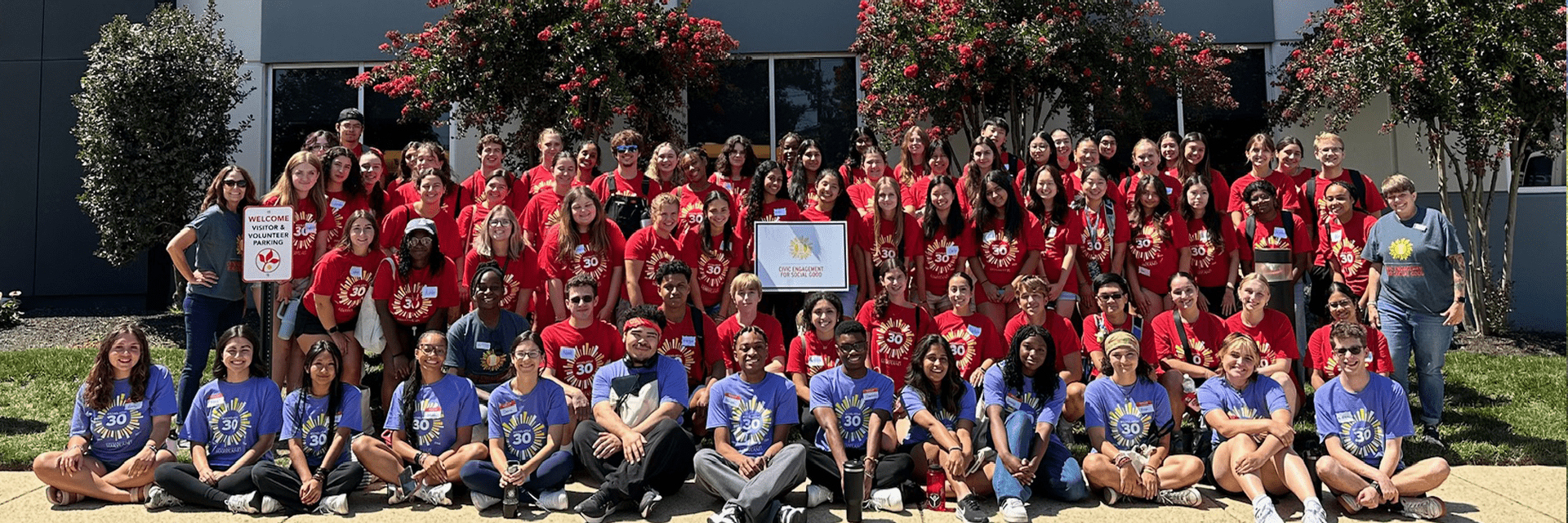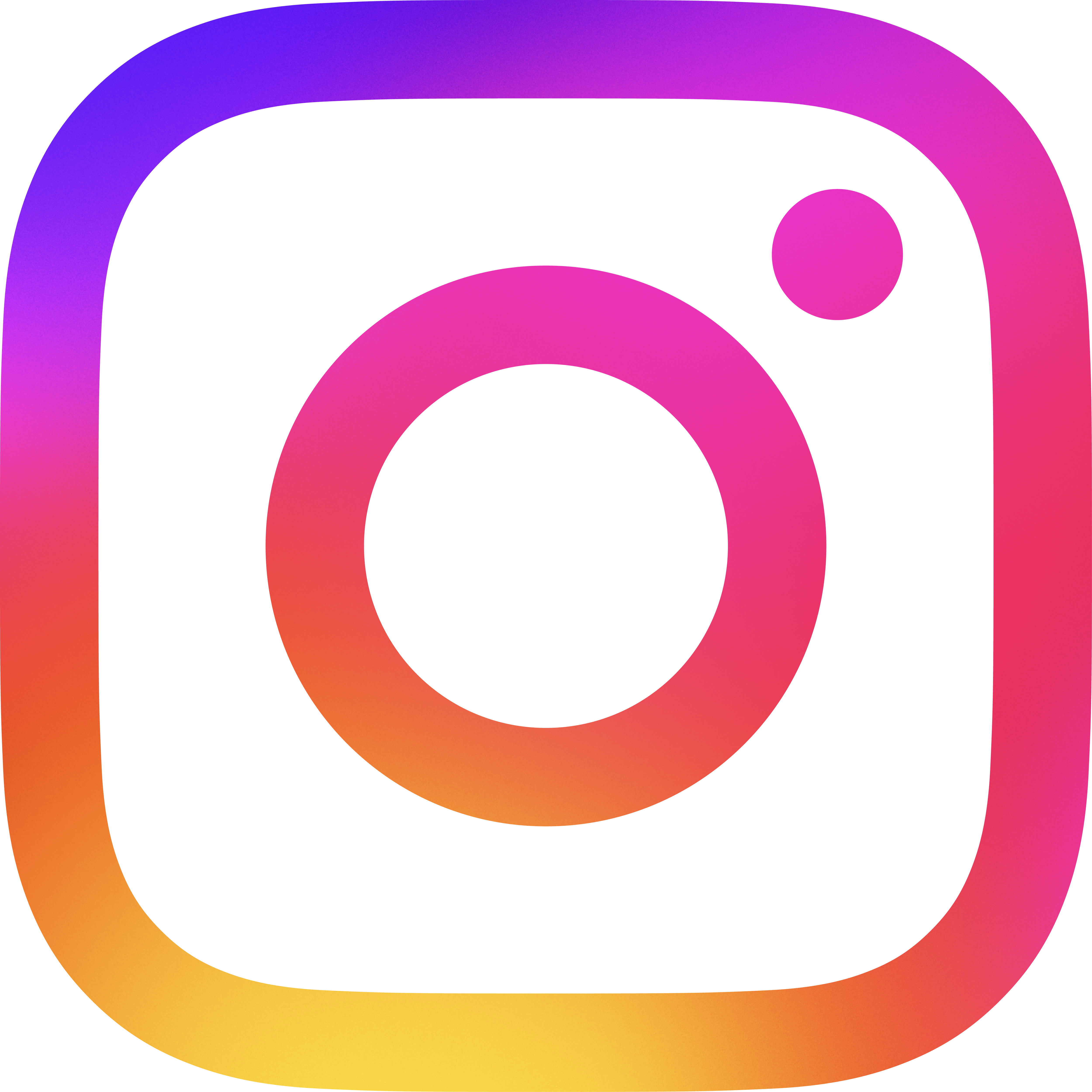Civic Engagement for Social Good
Inspiring community collaboration and meaningful change
Introduction
The world critically needs changemakers committed to understanding social issues and collaborating alongside their communities to foster meaningful change. In Civic Engagement for Social Good (CESG), previously known as CIVICUS, students work with organizations addressing a range of societal challenges, including poverty, food insecurity, housing insecurity, child welfare, education, political activism, animal rights, and the environment. Students explore:
- Issues impacting local communities
- Organizations that are addressing pressing social issues
- Ways to engage in hands-on work in civic engagement
- Strategies for deliberative dialogue in a multicultural world
- Methods to leverage their strengths to make sustainable change
CESG coursework and community engagement activities operate in tandem, creating a synergy that enhances the overall student experience. Coursework provides an opportunity for students to explore the root causes of social needs and strategies for addressing social concerns that they see during their work in the community, while service projects and co-curricular activities create an environment for students to implement what they learn in the classroom.
As an interdisciplinary program, CESG students represent a wide range of academic interests and majors. Civic Engagement for Social Good encourages students to ground their work in their passions, academic majors, and professional interests.
Through their shared passion for social good and engagement in co-curricular activities, CESG students form a close cohort who develop strong friendships and support each other throughout their time at UMD.
Colloquium and Lecture Topics
- The complexities and the structures that cause social issues
- Concepts related to the theories and practices of civic engagement
- Models for working towards positive social change
- Ways to engage in difficult conversations with empathy around differences of perspective, beliefs, and identities
[This program] has made me a kinder, more compassionate, more informed person. [It] gave me the opportunity to get my hands dirty, to engage in the community in ways I never thought I could. [It] has taught me that it takes a village but also that I can make tremendous change myself..providing me with more opportunities for learning and character-building than I would've gotten in any other program or club.
Other Learning Opportunities
Students are actively engaged in UMD, College Park and surrounding areas, and Washington, DC annually completing over 1,000 hours of volunteer work. Students can choose from over 100 projects per year with a wide array of partner organizations.
Students:
- Participate in civic engagement projects. Recently, students have acted as mentors for local elementary students, planted trees to increase the canopy in Washington, DC, served meals from a mobile soup kitchen, handled dogs at a humane rescue adoption event, canvassed on behalf of political candidates, and captioned videos to ensure accessibility for a wider community.
- Take trips to Washington DC and the surrounding area where they participate in scavenger hunts, visit memorials, monuments, and museums, and attend baseball games, cultural heritage events, and the performing arts.
- Meet guest speakers, including politicians, staff members from local non-profit organizations, and local community leaders and activists
- Participate in community-building activities, such as challenge courses, trivia nights, bingo, BBQs, and study breaks
CESG staff provide the planning, logistical support, and transportation for most activities. All second-year students also participate in a capstone experience for academic credit. The capstone can include an internship, extensive work with a non-profit, or affiliated experiential learning courses. Students in the past have held internships in local and national politics, non-profits, high-profile media outlets, medical facilities, research labs, mentoring organizations, and peer dialogue training. The capstone gives students authentic experiences and skills that help support their academic work, career goals, and future community engagement efforts.
Curriculum Overview
Over the two-year program (four semesters), students complete 12-credit hours that count toward their CESG Scholars citation. The following table represents a typical two-year curriculum. Details about courses and requirements can be found on the CESG Citation Checklist
| SEMESTER | COURSE | CREDITS |
|---|---|---|
| Semester 1 | CPCV 100: Colloquium I | 1 credit |
| CPCV 225: Intro to Civic Engagement for Social Good | 3 credits | |
| Semester 2 | CPCV 101: Colloquium II | 1 credit |
| Semester 3 | CHSE 328C: Intergroup Dialogue (DVCC) | 1 credit |
| CPCV 200: Colloquium III | 1 credit | |
| Semester 4 | CPCV 230: Internship; or CPCV 240: Service-Learning; or CPCV 250: Research; or |
3 credits 3 credits 3 credits |
| Semester 1, 2, 3, or 4 | Supporting Course (var. Gen Ed) | 3 credits |
Sponsoring College
Office Address
1103 Centerville Hall
Office Email
Faculty
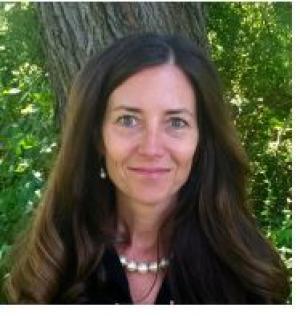
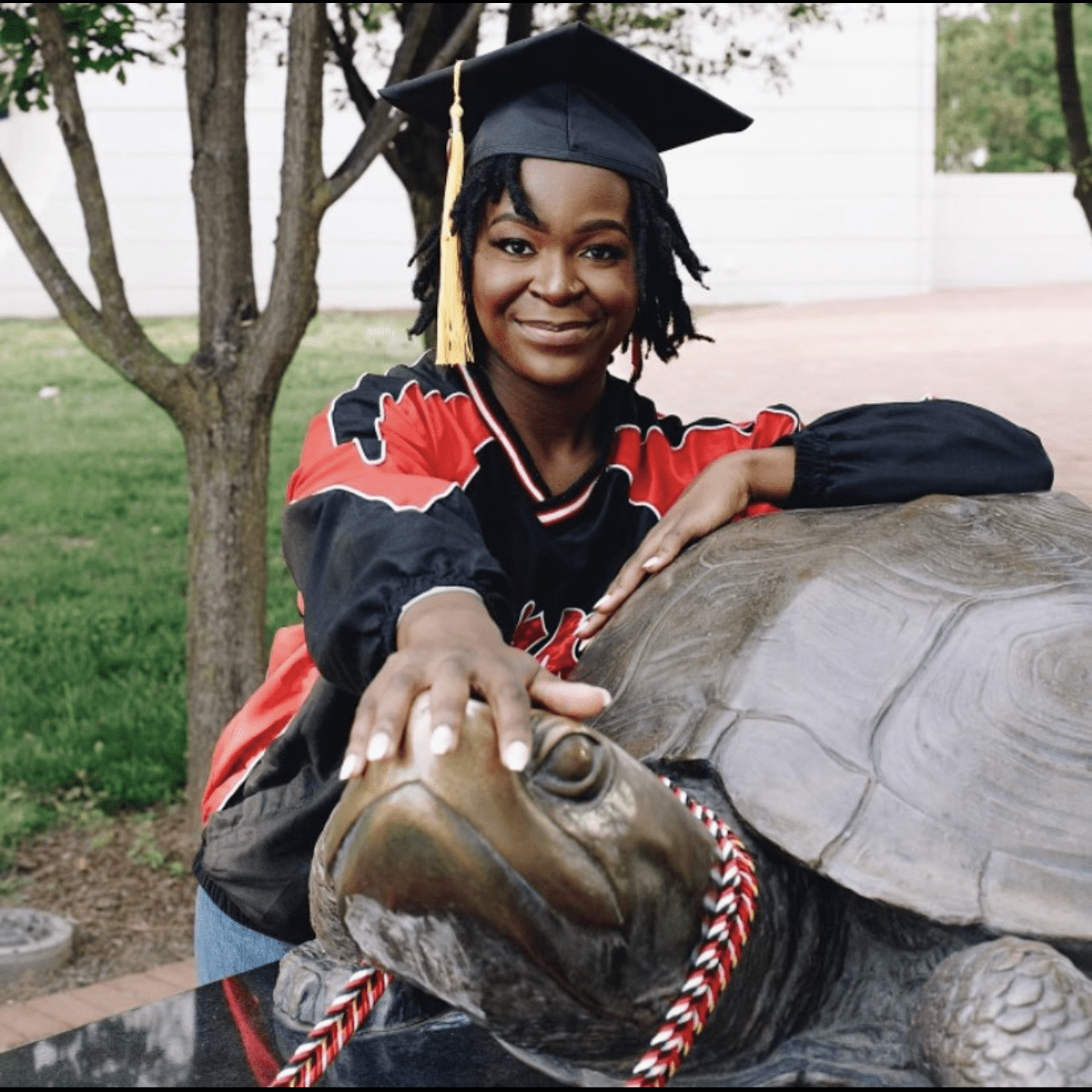
Deborah Omotoso
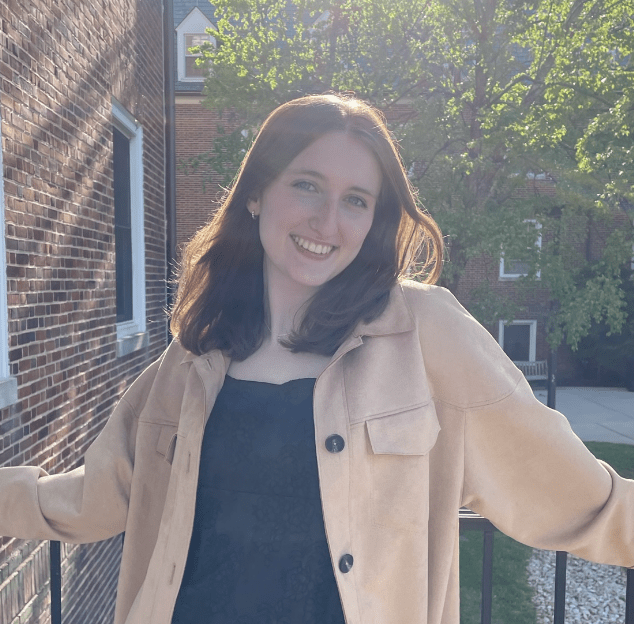
News and Notes, Etc.
Civic Engagement for Social Good News
‘Proud to be a Scholar’: Arts Alum Now Working as Healthcare Lobbyist
Looking back, Arts Scholars alumna Shannon Gahs says it’s interesting to see how Arts Scholars alumni have used their experience in the program to bridge into different areas. After graduating from the University of Maryland in 2006, Gahs attended the University of Baltimore School of Law. She is now working at Bayada Home Health Care advocating for policies that will benefit nurses and therapists. In August, she was promoted to director of government affairs. “I’m using the organizational and presentation skills [that I developed in Arts] to bring together grassroots support and build coalitions with other groups advocating for our patients and nursing staff,” Gahs said.
Scholars Recognized at 2017 University Awards
Scholars students took home several top awards at the 36th University Student Leadership Awards on Sunday, May 7. University Awards recognized Maryland Medallion Society members and Byrd/Elkins Finalists who have contributed significantly to the general advancement of this university’s interests and displayed outstanding involvement and leadership in campus activities. These students are the university’s top 20 senior students; two Scholars alumni were recognized by the Maryland Medallion Society:
Public Leadership Alum Jazz Lewis Elected to Maryland State Legislature
Jazz Lewis, a 2009 alumnus of Public Leadership Scholars, is currently serving as the second youngest delegate in the Maryland General Assembly. "[Public Leadership] was pivotal to me, I got my first job in politics because of Public Leadership. I interned in the [Prince George’s County] councilman’s office as part of my practicum project," Lewis said. This internship provided him with a "feel for change on the local level," especially in Prince George’s County, where Lewis grew up. Lewis was introduced to this internship opportunity when former Public Leadership Director David Crocker brought in a Prince George’s County council member to speak to their class.
Washburn to Replace Littlefield as Director of Public Leadership Scholars
After working with Public Leadership Scholars for 10 years, Jennifer Littlefield will be transitioning out as director of the program and moving into the Public Policy Undergraduate Studies Office full-time. Littlefield sent Public Leadership Scholars an email on March 8 to inform students that this semester will be her last with PL. "It’s very bittersweet for me as August will mark my 10-year anniversary with the Public Leadership Program, four years as the Director," Littlefield wrote. "I absolutely love PL, its mission, curriculum, activities, staff, and most of all YOU. I will miss it tremendously, but I'm also very excited to be focusing my attention on launching the new major in Public Policy."
Science, Discovery and the Universe Alum to Earn PhD from Heidelberg
Science, Discovery and the Universe alumna Steffi Yen is pursuing her doctorate degree at Heidelberg University after graduating from the University of Maryland in 2013 with her B.S. in astronomy. Yen credits SDU Scholars with furthering her passion for astronomy through academic excursions and hands-on scientific experiences. "My favourite SDU excursion was to the National Radio Astronomy Observatory in Green Bank, West Virginia, home of the world's largest steerable radio telescope," Yen said. "We got a little taste of what it's like to be an astronomer. We were able to operate a small radio telescope and analyzed the spectral emission from clouds in the Milky Way."
Life Sciences Alum Opens Private Audiology Practice
Dr. Melissa Wikoff, a University of Maryland graduate who earned her Life Sciences Scholars citation in 2004, opened her own audiology practice in Marietta, Georgia. "My experience with Life Sciences Scholars has made a huge impact on my career and who I am today, socially and educationally,” Wikoff said. “Life Sciences gave me the foundation for my love of science, anatomy, and how hearing works." According to their website, Peachtree Hearing “uses the latest technology, scientifically proven techniques, and compassionate personalized care” to treat their patients. Wikoff specializes in the diagnosis and treatment of dizziness, which is typically due to disorders of the inner ear.
